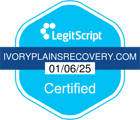To improve your health and stop triggers in recovery, learn how to manage your H.A.L.T. reactions. HALT is an acronym for Hungry, Angry, Lonely, and Tired, and these physical and emotional states of being serve as both warning bells and action points to help you manage cravings before they escalate.
How Cravings and HALT Reactions Collide
Craving is a desire to experience what you perceive as the positive effects of drug or alcohol use, regardless of the known negative consequences. Results from a 2023 study state that “craving is a central feature of addiction and has been implicated as a predictor of future use.” Cravings are often a combination of physiological and psychological factors that stem from little warning signs generated by HALT reactions.
In an article for the Cleveland Clinic, addiction specialist and psychiatrist David Streem says that “HALT has two physical states—hunger and tired—and two emotional states—anger and loneliness,” he explains. “The biggest threat to a person’s sobriety and early recovery is ineffective coping strategies to manage those unpleasant emotions or physical states.”
According to the National Institute on Drug Abuse (NIDA), the science of addiction recovery includes remission—which is when individuals “overcome their illness and regain health and social function”; and recovery—when “positive changes and values become part of a voluntarily adopted lifestyle.” So, depending on what stage you’re in, it’s quite possible your brain chemistry is still adapting to improved cognitive function and is less affected by artificial stimuli.
Some addiction researchers believe it can take up to two years for someone with alcohol use disorder (AUD) or substance use disorder (SUD) to reach a settlement of healing. This includes not only adopting positive changes and values, but also perhaps total abstinence from any addictive catalyst, as well as the ability to, as NIDA states, “handle negative feelings without using substances, and living a contributing life.”
So knowing HALT is critical on two fronts:
- You have a technique by which to recognize what you’re feeling on multiple levels.
- You can use the HALT method to pause, identify these states of being, and address them before they manifest into harder-to-control cravings.
“HALT is a reminder to take care of your physical and emotional health,” Streem notes. “Asking yourself, ‘What is my physical state?’ and ‘What is my emotional state?’ can help offer clarity to any situation. And often, clarity is what’s needed to get you through the day.”
Stop Triggers by Knowing HALT
By being mindful of HALT triggers and implementing strategies to manage them effectively, you can improve your well-being and reduce the impact of stress on your life.
First, become more aware of the physical and emotional signals that indicate you might be experiencing hunger, anger, loneliness, or tiredness. This could include irritability, fatigue, difficulty concentrating, or increased cravings.
So, if you’re hungry:
- Practice mindful eating by paying attention to your body’s hunger and fullness cues.
- Eat a balanced meal or snack to stabilize blood sugar levels and provide your body with the energy it needs.
- Keep healthy snacks readily available to prevent hunger from escalating.
When you feel lethargic or tired:
- Take short breaks throughout the day to rest and recharge, especially during periods of intense mental or physical activity.
- Limit caffeine and stimulant intake, especially later in the day, to avoid disrupting sleep patterns.
- Practice relaxation techniques, such as meditation, deep breathing, or progressive muscle relaxation, to promote relaxation and reduce stress.
- Prioritize getting enough sleep by establishing a consistent bedtime routine and creating a restful sleep environment.
- Consider scheduling a check-up with a healthcare provider if you constantly struggle with fatigue, as underlying medical conditions may be contributing factors.
Next, learn to be more kind to yourself and acknowledge that it’s normal to experience certain feelings from time to time. Avoid self-criticism and instead focus on finding constructive ways to manage your emotions. Don’t hesitate to ask for help when you need it.
If you’re irritable or angry:
- Take a step back and give yourself time to cool down before reacting impulsively.
- Practice deep breathing exercises or progressive muscle relaxation to calm your body’s stress response.
- Engage in physical activity, such as going for a walk or practicing yoga, to release pent-up tension and frustration.
- Express your feelings in a constructive way by journaling, talking to a trusted friend, or seeking professional support if necessary.
When you’re feeling lonely:
- Reach out to friends, family members, or support groups for social connection and companionship.
- Engage in activities that bring you joy and fulfillment, such as pursuing hobbies, volunteering, or joining clubs or organizations.
- Practice self-compassion and remind yourself that it’s okay to feel lonely at times, and that you are deserving of love and connection.
- Consider seeking professional counseling or therapy to explore underlying issues contributing to feelings of loneliness.
By responding to the physical and emotional HALT reactions with these strategies, you can effectively manage trigger symptoms and reduce the likelihood of experiencing negative outcomes associated with them.
Reinforce Positive Change With Help From Ivory Plains
Addiction isn’t a life sentence, and a single chapter doesn’t define your entire story. At our addiction rehabilitation program in Adair, Iowa, our board-certified staff is dedicated to offering help and support to you and your family. We want to give you every opportunity to learn better methods for healing and resiliency. Both our residential care treatment and partial hospitalization or day treatment programs provide customized solutions to your aftercare needs so you develop the confidence to not only know yourself, but also reinforce your recovery in more healthful ways. If you or a loved one are ready for this type of positive change, call us today to learn how we can help.








